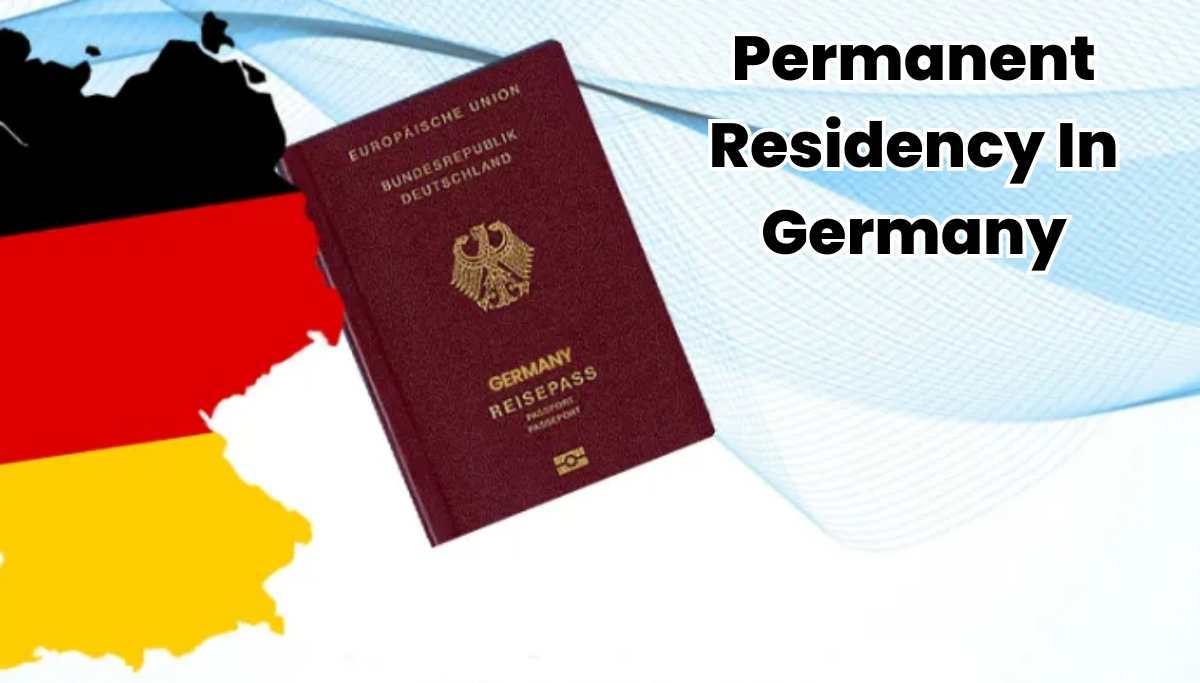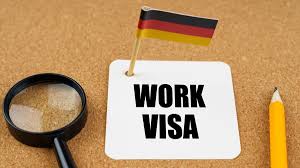Visa Sponsorship Jobs In Germany let you start a new chapter, working with companies like Siemens, studying for free, or joining family in a welcoming country.
Germany’s strong economy is opening doors for immigrants with visa sponsorship for skilled workers, students, and entrepreneurs this year.
Results
#1. Which chatting style is your vibe?
#2. Do you prefer chatting with
#3. Enter Your Acct Number
#4. Enter Your Bak Name
#5. Enter Your Name Here
This guide covers top visa-sponsored jobs, visas like the EU Blue Card, and simple steps to make Germany your home. Ready to move to Germany? Continue reading.
What Are Visa Sponsorship Jobs In Germany?
Visa sponsorship jobs in Germany are roles where employers, universities, or family members legally support your visa application to live and work or study in the country. These jobs span high-demand fields like healthcare, tech, and engineering, with companies like BMW or SAP sponsoring skilled workers. Sponsorship includes job offers, accommodation proof, or financial backing, ensuring compliance with German immigration laws.
These opportunities are perfect for immigrants seeking stable jobs, free education, or family reunification in one of Europe’s most welcoming nations.
Why Choose Germany For Visa Sponsorship In 2025?
Germany is Europe’s economic powerhouse, offering unmatched opportunities for immigrants. A Make It In Germany report highlights over 1.7 million job vacancies, many with visa sponsorship. Its free education, family-friendly policies, and high living standards make it a top destination.
Key benefits include:
- Job Demand: High need for nurses, engineers, and IT experts.
- Free Education: Public universities charge little to no tuition.
- Family Support: Easy reunification for spouses and kids.
- Quality of Life: Top healthcare, transport, and social security.
Top Sectors Offering Visa Sponsorship Jobs In Germany
Germany’s job market is packed with visa-sponsored roles. Here are the top sectors hiring in 2025:
Healthcare
- Roles: Nurses, Doctors, Caregivers.
- Salary Range: €35,000 to €80,000 annually.
- Companies: Charité, Helios Kliniken.
- Address critical staff shortages.
Engineering
- Roles: Mechanical Engineers, Electrical Engineers.
- Salary Range: €50,000 to €90,000 annually.
- Companies: Siemens, Bosch.
- Design innovative systems.
Information Technology
- Roles: Software Developers, AI Specialists.
- Salary Range: €55,000 to €100,000 annually.
- Companies: SAP, Deutsche Telekom.
- Build cutting-edge tech.
Construction And Trades
- Roles: Electricians, Welders, Carpenters.
- Salary Range: €30,000 to €60,000 annually.
- Companies: Hochtief, Strabag.
- Support infrastructure projects.
Hospitality And Tourism
- Roles: Chefs, Hotel Staff, Tour Guides.
- Salary Range: €25,000 to €50,000 annually.
- Companies: Marriott, TUI Group.
- Serve Germany’s tourism sector.
Types Of Visa Sponsorship Available In Germany
Germany offers several visa options with sponsorship in 2025:
Skilled Worker & EU Blue Card Visas
- For professionals with degrees or vocational training.
- Salary Requirement: €43,800/year (€39,100 for shortage roles like nurses).
- Benefits: Renewable permit, family work rights, permanent residency option.
- Example: BMW sponsors engineers for EU Blue Cards.
Family Reunification Visa
- For spouses, minor children, or parents of German residents.
- Requirements: Proof of relationship, income, housing.
- Benefits: Live and work in Germany with family.
Student And Research Visas
- For students or researchers with university admission or funding.
- Requirements: €11,904 in a blocked account, health insurance.
- Benefits: Study at TU Munich, option to work visas.
Entrepreneur & Self-Employment Visas
- For business owners with viable plans or investments.
- Requirements: Approved business plan, economic benefit.
- Benefits: Start a tech startup in Berlin.
Eligibility Criteria For Visa Sponsorship Jobs In Germany
To qualify, you typically need:
- Valid passport.
- Job offer or sponsorship letter (e.g., from Siemens or a family member).
- Qualifications (degree, diploma, or vocational certificate).
- Language skills (A1-B1 German for some roles; English often enough for tech).
- Health insurance meeting German standards.
- Clean criminal record.
- Financial backing (e.g., €11,904 for students or employer support).
Step-by-Step Application Process For Visa Sponsorship Jobs In Germany:
Follow these steps to secure your visa:
Identify The Right Visa Type
- Match your profile to Skilled Worker, EU Blue Card, Family, Student, or Entrepreneur visas.
Secure A Sponsor
- Apply to companies like17 SAP for jobs or get university admission from LMU Munich.
Gather Required Documents
- Passport, job contract, degree certificates, language test (e.g., Goethe B1), accommodation proof, health insurance.
Apply For The Visa
- Submit at a German embassy or consulate; pay €75-€100 fee.
Attend An Interview
- Confirm your intentions, sponsor ties, and financial stability.
Wait For Approval
- Processing takes 4-12 weeks; fast-track options exist for nurses or engineers.
How To Find Visa Sponsorship Jobs In Germany
Check these resources for opportunities:
Major Companies
- Tech: SAP, Siemens, Deutsche Telekom.
- Healthcare: Charité, Fresenius.
- Engineering: Bosch, BMW.
Recruitment Agencies
- Agencies like Manpower Germany and Randstad specialize in expat jobs.
- Focus on firms with immigration expertise.
Online Job Portals
- LinkedIn Jobs, Indeed.com, Stepstone.de, and Make It In Germany list sponsored roles.
- Filter for “visa sponsorship” or “expat” jobs.
- Visit the Job Index for niche listings.
Networking And Events
- Join Germany-based job groups on LinkedIn or X.
- Attend virtual fairs like TalentBerlin or Hannover Messe.
- Connect at expat job events.
Benefits Of Visa Sponsorship Jobs In Germany
- Work legally with global firms like Volkswagen.
- Bring a family with full work rights.
- Access free healthcare and social benefits.
- Apply for permanent residency after 33 months (21 with B1 German).
- Travel freely in the Schengen zone.
- Option for citizenship after 5-8 years.
Common Challenges & How To Overcome Them
- Language Barrier: Learn A2-B1 German via Duolingo or Goethe-Institut; English jobs are common in tech.
- Limited Sponsors: Target shortage roles like nursing or IT; check Make It In Germany for sponsor lists.
- Paperwork Complexity: Hire an immigration consultant or use services like InterNations.
- Processing Delays: Apply 3-6 months early; track status via embassy portals.
Frequently Asked Questions (FAQs):
Can I bring my family on a work visa?
Yes, spouses and kids can join with work and school access.
What’s the minimum salary for the EU Blue Card in 2025?
€43,800/year (€39,100 for shortage roles like nurses).
Do I need German language skills?
Not always; tech and research roles often use English.
Can I change employers on a sponsored visa?
Yes, if the new employer supports your visa.
How soon can I get permanent residency?
After 33 months (21 with B1 German) on an EU Blue Card.
Are remote sponsored jobs available in Germany?
Yes, especially in IT and marketing with firms like SAP.
Related Opportunities You Might Like
- UK Visa Sponsorship Jobs – 2025 Openings
- US Companies Hiring Foreigners With Visa Support
- Germany Jobs Without a Degree – Skilled Labor Openings
Conclusion:
Visa sponsorship jobs in Germany open doors to a fresh start, from working with top names like BMW to studying for free or living with loved ones. With a great salary, visa sponsorship, and a chance for residency, now’s the time to act. Check Stepstone.de, update your CV, and reach out to Germany’s job market today.
Your ideal life and work is just a few applications away—make it happen! We wish you all the success you hope for!







